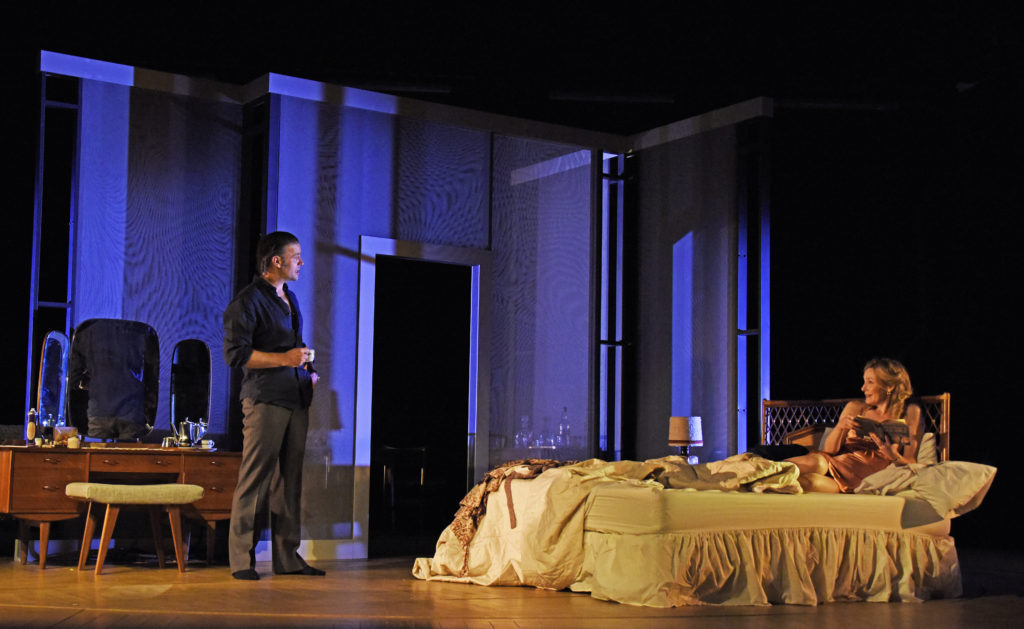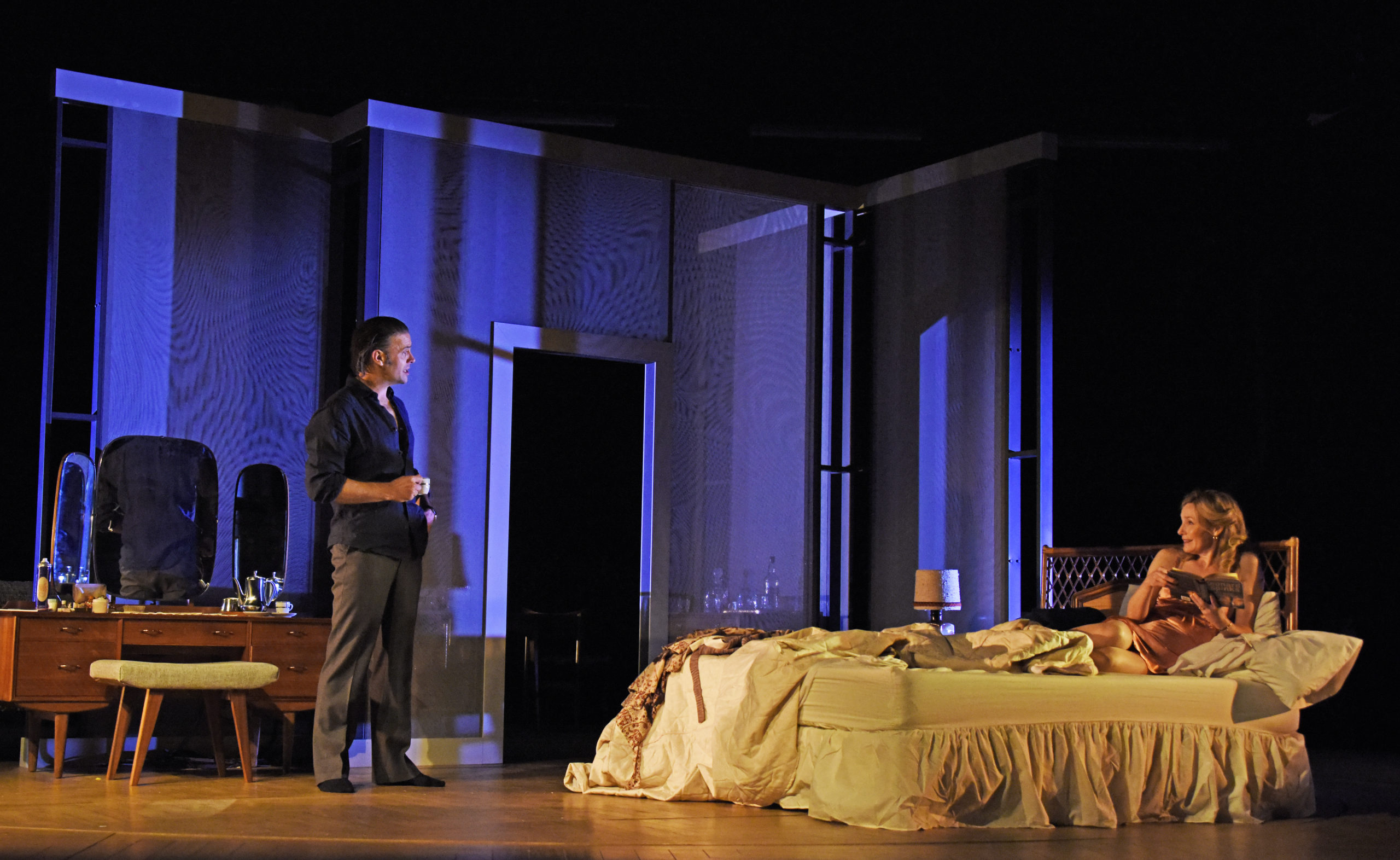
The Theatre Royal Bath are amongst the first into the field with a Covid-ready production that brings us as near as possible to the experience of those far off days when theatergoers were allowed to mingle. Last night the exercise, I can happily report, was a successful outcome for all the head scratching and thoughtful planning, which has allowed those thirsty for live theatrical performance – in the flesh so to speak – to drink at one of the region’s favoured founts. I did have a moment of apprehension, when challenged at the entrance by a digital thermometer, as I had the fleeting thought that I could in fact be asymptomatic and deluding myself as to otherwise apparent good health.
In the auditorium, which was ‘sold out’, velvet tabs, poignantly draped over seats like place settings for absent friends offered certain benefits which were immediately apparent; there was somewhere to put your jacket and sight lines were unhindered. In fact the whole audience could have been bonneted without any cause for polite taps on shoulders.
Did the culling result in a lack of atmosphere? No definitely not, apart from an uninvitingly dimmed and empty bar (pre show) once the lights were down it was little different from ‘normal’. If that’s going to be the case with some knockabout stuff on stage remains to be seen, but for a challenging Pinter there were enough of us for the actors to get their hooks into.
I use the term ‘challenging’ advisedly, because although Betrayal is in some sense one of, if not the most, ‘un-Pinteresque’ of his works – there is little in the way of symbolism to confound us – there are nevertheless eddies in the play, which only careful directing and playing can fully exploit.
The reverse order of the scenes, runs back, not, as we might expect, to an explosion which has spawned emotional wreckage, but a moment of passion, of emotional and moral deception which runs its course in a world, much changed in the wake of the sixties liberation from Victorian obsessions and hypocrisies. In short it is a play very much of and about its time which uses an almost pure form of dramatic irony in which the dissembling is seen by the audience as an assembling of deceits from, ironically, their finishing point.
The play could easily be titled Deceit and the multiple betrayals, which pop out like nested Russian dolls ultimately leave little in the way of scar tissue beyond a kind of irritated bafflement that certain things went on or, more irritatingly, were known about by the ‘injured parties’ who kept schtum. It shows a society which has thrown away the moral compass, at least as far as sexual manners is concerned, in light of a new moral landscape where ‘betrayal’ seems to be the norm, almost expected, and the consequences are almost comic. There is little to suggest lasting moral or emotional harm. For those who crave moral certainty or rectitude it might be seen as bleak, but for the rest of us it can be seen as a stride on the way to where we are now.
Nancy Carroll (Emma) gives us a clear line from the disgruntled partner who spills the beans on her seven year affair by way of punishing her husband, Robert (Joseph Millson) for the revelation of his affair, back to the jejune newlywed who oh-so-easily falls for the passionate declaration of Jerry (Edward Bennett) her husband’s best man. Her subtle regression is carefully judged and nuanced.
Messrs Millson and Bennett equally move smoothly back through the reverse gears in director, Jonathan Church’s, deft handling of the shifting relationships.
With this show the Theatre Royal is back in business showing that high quality work is eminently achievable in conditions, which might, until recently, have seemed beyond reach. ★★★★☆ Graham Wyles 21st October 2020
Photo by and © Nobby Clark


